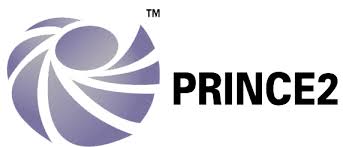
Performance Focused Leadership
Course ID: 2507135701095EGI
Course Dates : 13/07/25 Course Duration : 5 Studying Day/s Course Location: Bahrain, Bahrain
Language: Bilingual
Course Category: Professional and CPD Training Programs
Course Subcategories: Leadership and Management Excellence
Course Certified By: * Projacs Academy
* Professional Training and CPD Programs
Certification Will Be Issued From :
KSA
Course Fees: £2,940.22
Vat Not Included in the price. VAT may vary depending on the country where the course or workshop is held.
Click to Pay
Date has passed please contact us Sales@e-s-hub.com
Course Information
Introduction
Leadership has long been recognized as a cornerstone of organizational success, yet the evolving demands of modern workplaces necessitate a shift from traditional leadership models to more dynamic and performance-driven approaches. In industries ranging from healthcare to technology, leaders are increasingly tasked with driving results while fostering environments that promote innovation, collaboration, and employee well-being. This course on Performance Focused Leadership addresses the critical intersection of leadership effectiveness and measurable outcomes, equipping participants with the tools and strategies needed to excel in high-stakes environments.
A recurring challenge for many organizations is the gap between leadership potential and actual performance. Research by McKinsey & Company highlights that only 10% of leaders exhibit all the traits associated with high-performing teams, such as adaptability, emotional intelligence, and strategic thinking. This course aims to bridge this gap by addressing common pitfalls—such as micromanagement, lack of accountability, and poor communication—that hinder both individual and team performance. By integrating frameworks like John Kotter’s Change Leadership Model and Daniel Goleman’s Emotional Intelligence Theory, participants will gain a comprehensive understanding of how to align leadership practices with organizational goals.
The benefits of mastering performance-focused leadership extend beyond personal growth; they ripple through entire organizations. For instance, companies like Google have demonstrated the transformative power of effective leadership through initiatives like Project Oxygen, which identified key behaviors of high-performing managers. Leaders who adopt these principles often see improvements in team productivity, employee retention, and overall morale. On an individual level, participants will enhance their ability to inspire trust, manage conflict, and navigate complex challenges, positioning themselves as indispensable assets within their organizations.
Real-world examples underscore the practical applications of this course material. Consider the turnaround story of Ford Motor Company under Alan Mulally’s leadership. By implementing data-driven decision-making processes and fostering a culture of transparency, Mulally not only saved the company from bankruptcy but also set new benchmarks for leadership excellence. Similarly, participants will learn how to leverage metrics and feedback loops to create actionable plans that drive sustainable growth. These case studies serve as powerful illustrations of how theory translates into practice.
Another pressing issue in today’s workplace is the need for leaders to balance short-term objectives with long-term vision. The VUCA (Volatility, Uncertainty, Complexity, Ambiguity) framework provides a lens through which leaders can better understand and respond to rapidly changing conditions. Through interactive sessions and scenario-based learning, this course will equip participants with the agility required to thrive in unpredictable environments. They will also explore emerging trends such as remote work dynamics and digital transformation, ensuring they remain relevant in an ever-evolving landscape.
Ultimately, Performance Focused Leadership is designed to empower individuals to lead with purpose and precision. Whether you’re managing a small team or overseeing large-scale operations, the skills acquired in this program will enable you to unlock untapped potential and achieve exceptional results. By blending rigorous academic insights with hands-on application, this course offers a unique opportunity to redefine what it means to be a leader in the 21st century.
Objectives
By attending this course, participants will be able to:
Analyze the core principles of performance-focused leadership and their alignment with organizational goals.
Evaluate the impact of emotional intelligence on team dynamics and develop strategies to enhance interpersonal relationships.
Design data-driven action plans to address specific performance gaps within teams or departments.
Implement change management techniques to facilitate smooth transitions during periods of organizational disruption.
Apply conflict resolution methodologies to resolve disputes and foster a collaborative work environment.
Assess the role of feedback mechanisms in continuous improvement and establish systems for ongoing evaluation.
Synthesize industry trends and best practices to create innovative solutions tailored to unique organizational contexts.
Who Should Attend?
This course is ideal for:
Mid-to-senior-level managers seeking to refine their leadership capabilities and deliver measurable results.
HR professionals responsible for talent development and organizational culture initiatives.
Consultants and coaches working with clients to improve leadership effectiveness.
Entrepreneurs and business owners looking to scale their ventures through strategic leadership.
These groups will find the course invaluable as it directly addresses the challenges they face in driving performance and fostering engagement. While prior leadership experience is beneficial, the course is structured to accommodate intermediate learners who possess foundational knowledge but wish to deepen their expertise. Advanced practitioners may also benefit from the cutting-edge insights and practical tools provided throughout the program.
Training Method
• Pre-assessment
• Live group instruction
• Use of real-world examples, case studies and exercises
• Interactive participation and discussion
• Power point presentation, LCD and flip chart
• Group activities and tests
• Each participant receives a 7” Tablet containing a copy of the presentation, slides and handouts
• Post-assessment
Program Support
This program is supported by:
* Interactive discussions
* Role-play
* Case studies and highlight the techniques available to the participants.
Daily Agenda
The course agenda will be as follows:
• Technical Session 08.30-10.00 am
• Coffee Break 10.00-10.15 am
• Technical Session 10.15-12.15 noon
• Coffee Break 12.15-12.45 pm
• Technical Session 12.45-02.30 pm
• Course Ends 02.30 pm
Course Outlines
Foundations of Performance Focused Leadership
Understanding the Evolution of Leadership Models
Key Traits of High-Performing Leaders: Insights from Research
Introduction to Emotional Intelligence and Its Impact on Leadership
Setting SMART Goals for Leadership Development
Day 2:
Building High-Performance Teams
Principles of Team Dynamics and Group Cohesion
Strategies for Enhancing Communication and Collaboration
Conflict Resolution Techniques for Leaders
Case Study Analysis: Lessons from Successful Organizations
Day 3:
Data-Driven Decision Making
Leveraging Metrics to Drive Performance Improvement
Tools and Frameworks for Effective Performance Monitoring
Creating Feedback Loops for Continuous Learning
Workshop: Developing a Personalized Action Plan
Day 4:
Navigating Change and Complexity
Overview of Change Management Theories (e.g., Kotter’s 8-Step Process)
Leading Through Uncertainty: Applying the VUCA Framework
Managing Resistance to Change in Teams
Role-Playing Exercise: Simulating Real-World Scenarios
Day 5:
Sustaining Leadership Excellence
Cultivating a Culture of Accountability and Ownership
Balancing Short-Term Objectives with Long-Term Vision
Emerging Trends in Leadership: Remote Work and Digital Transformation
Final Presentations: Sharing Action Plans and Receiving Peer Feedback



















































